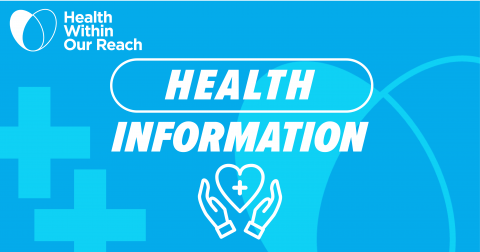April 14, 2022
Workers’ compensation in the United States: What does it involve and who can it benefit?

All workers go to their jobs to provide for themselves and their families. Jobs vary, but there’s one thing that they have in common: they involve what you know, what you feel, and what you can do physically.
Writing, walking, carrying, shelling, building, cleaning or drawing involves you putting your body into action to do a job.
We have already shared information about the right to a safe and healthy workplace, which prevents people from risking their lives or health at work. However, what can you do if this prevention is not enough? What happens if you get sick or injured on the job?
In the United States, there are workers' compensation laws that can help you in the event of a health problem at work. Regulations and procedures vary from state to state, but there are some basic principles.
First, it’s important to differentiate between two situations that can occur: work-related accidents and occupational illnesses.
1. Accidental injuries are those that occur at a specific time (you can remember the day, time and place), and they can have consequences for your physical or mental health. For example, if you injure your back while you are putting a box away, or if you slip off a ladder and fracture your ankle, it is a work-related accident.
2. Occupational illnesses occur over time. Some develop from doing the same activity many times. For example, working with your hands for many hours every day for several years can injure you and cause carpal tunnel syndrome, for example. If you get an infectious disease at work, such as COVID-19, it can also be an occupational illness, and you may be entitled to workers' compensation.
In general, if you are injured or become sick on the job, here’s what should happen:
- Let your employer know immediately.
As soon as you can, contact a lawyer with experience in workers’ compensation law in the state where you work. That way, they can give you information and advice about the process so you know your rights and can make informed decisions.
Go to a doctor or clinic to treat your injury or illness. You can choose the doctor that treats you.
Receive the proper treatment to recover.
Return to work to the extent possible according to your recovery process.
If your condition worsens, you can receive additional medical care.
In light of this, some benefits you may receive through the workers' compensation system are:
Wage compensation
If you were injured on the job and are medically unable to return to the same activity, you may be entitled to a lighter job that does not put your recovery at risk. If your employer cannot give you lower-risk work, you have the right to not work and still receive pay. However, that pay will be less than your regular weekly pay, although the exact amount varies by state.
In the state of Maryland, for example, the employer is responsible for paying two-thirds of your average weekly wage, before tax deductions. To make this calculation, your pay history for the last 14 weeks is reviewed, and two-thirds of that amount is taken.
Medical treatment
If you are entitled to medical treatment through the workers' compensation system, this benefit can be used for life. Even if your doctor releases you, and you have returned to work, your employer will still be responsible for any treatment related to the injury. For example, if you broke your ankle at work and after a period of time it does not improve or if it worsens, you can seek additional medical treatment. So, it is important that you keep all of your medical documentation because, in case your injuries cause other health problems or worsen, documentation will be useful in making this claim.
Permanent or partial disability
When you are injured and receive medical treatment, but still do not fully recover, your doctor may categorize you as being in a state of maximum improvement. This means that you have not regained the physical condition or health that you had before your injury, but medically there is nothing more to do.
That difference between before and after the accident is called “disability” and may be partial or permanent. If your doctor declares maximum improvement, you may be eligible for monetary compensation. This varies according to the part of the body that you are injured and the severity of your injury.
Vocational training
If your injuries or symptoms prevent you from returning to the job that you had, you may be entitled to vocational training to support you in obtaining another job, either in the same company or in a different one. The support consists in a professional evaluation and counseling to return to work.
Death
The death of a person is irreparable in many ways. The purpose of this benefit is to support the people who are economically dependent on the worker. Survivors can claim this benefit.
To enforce your rights under this system, it is always advisable to consult with an experienced workers' compensation attorney as soon as possible. If you have been injured or are experiencing an occupational illness, you can contact Centro de los Derechos del Migrante, Inc. (CDM). While CDM does not provide workers’ compensation representation, we can try to connect you with legal resources in your state. You can call:
- From Mexico at 800-590-1773.
- From the United States at 855-234-9699.
Hours of operation are Monday through Friday from 9:00 a.m. to 5:00 p.m. (CT).
